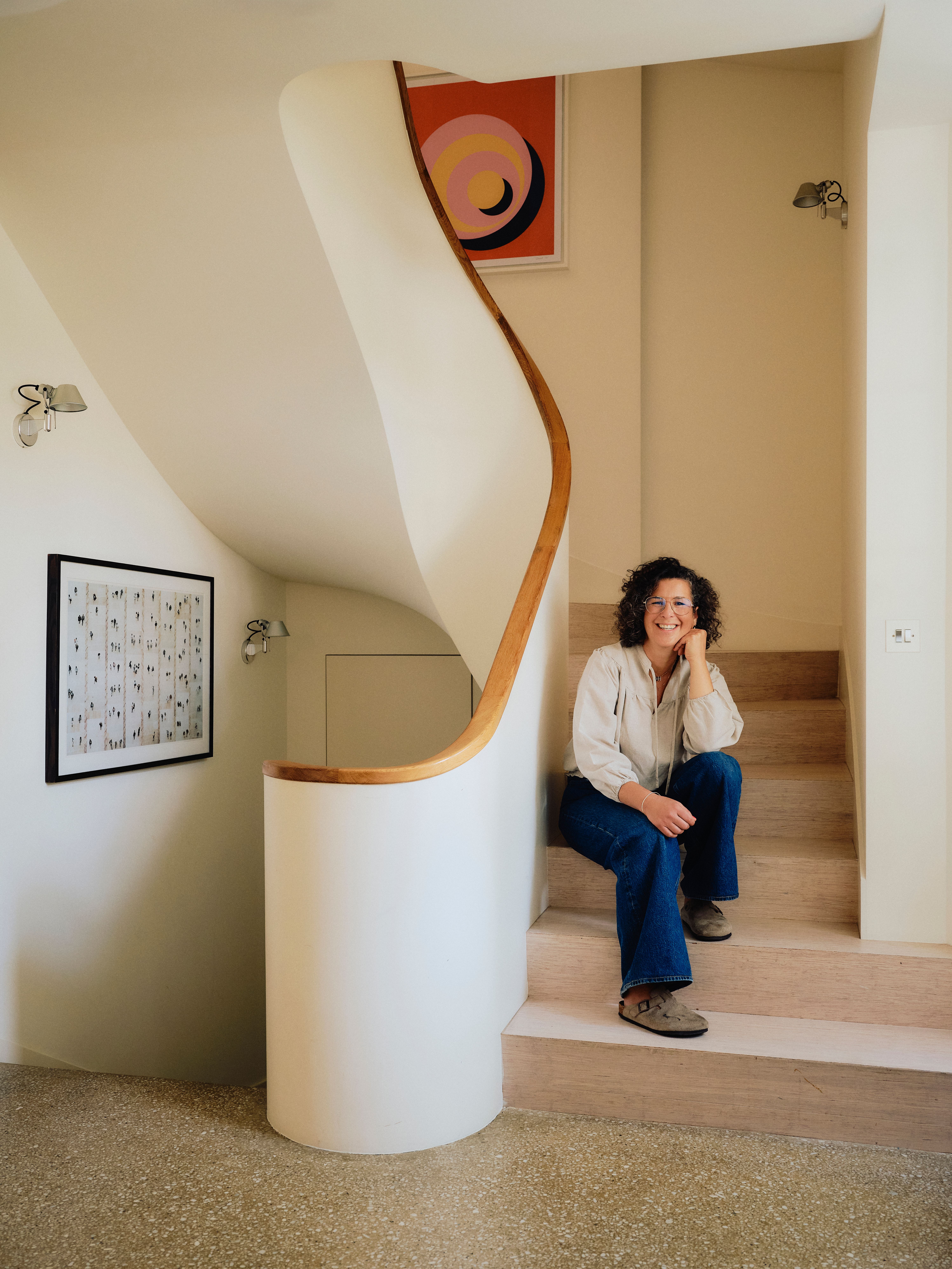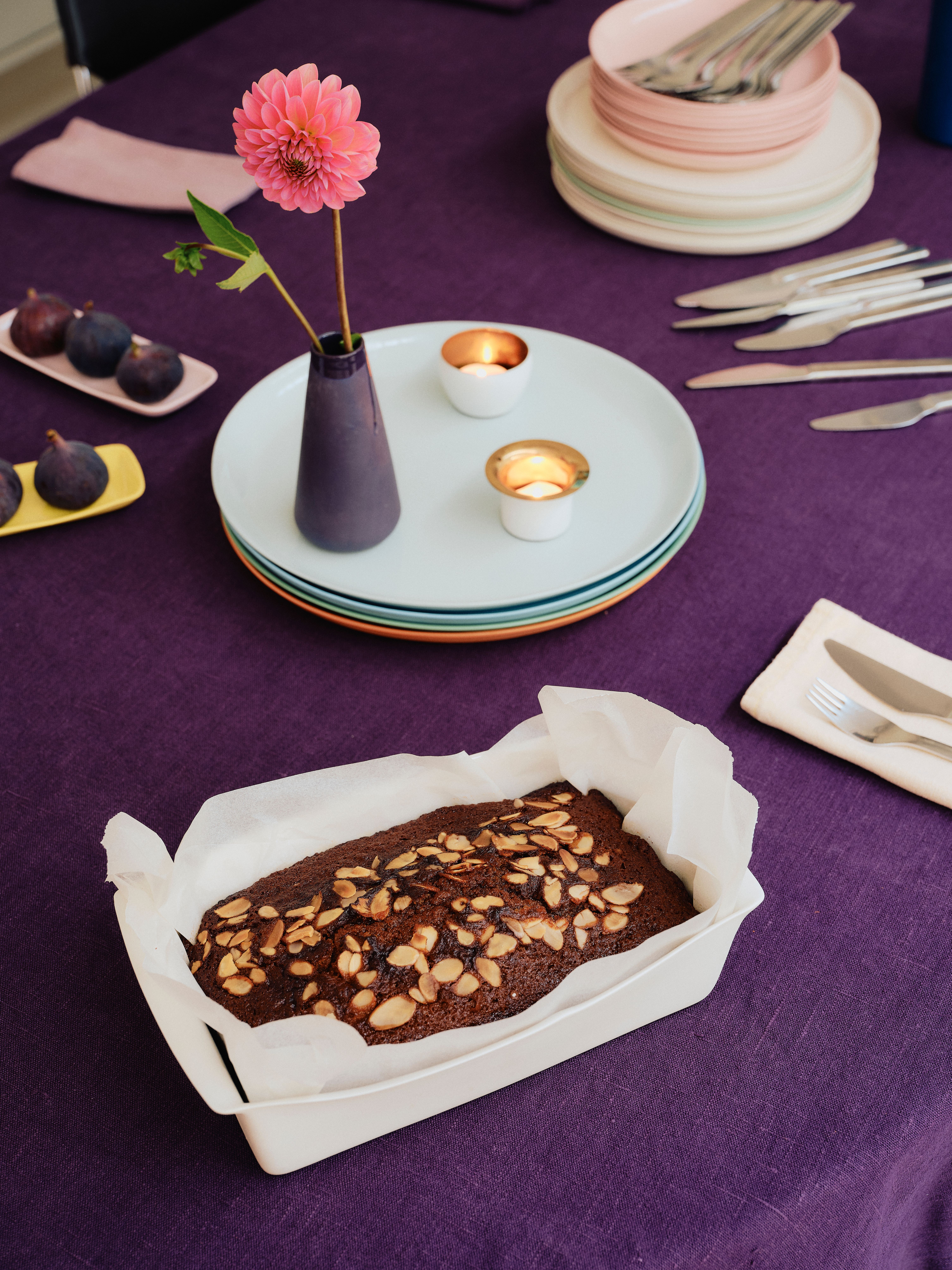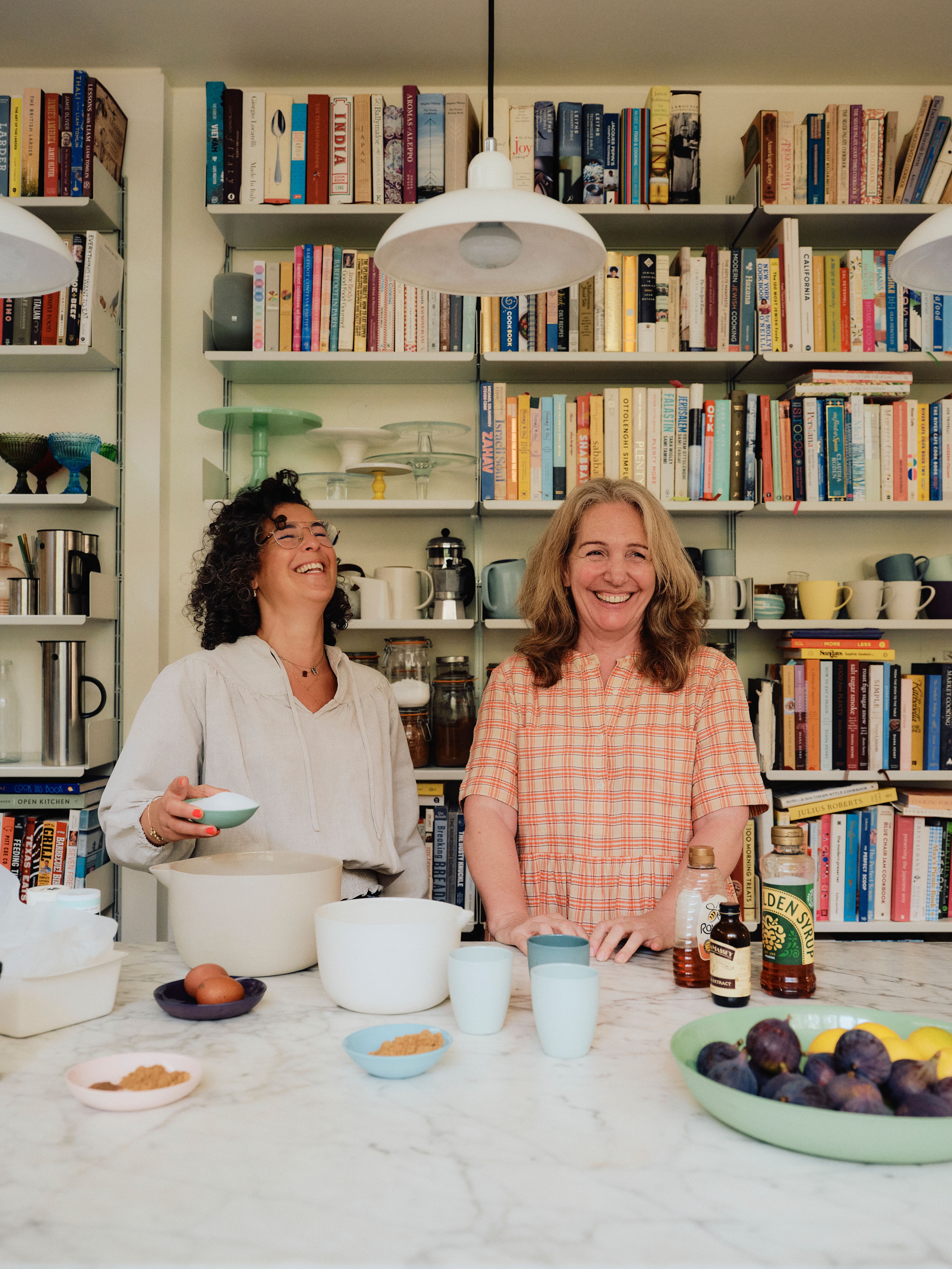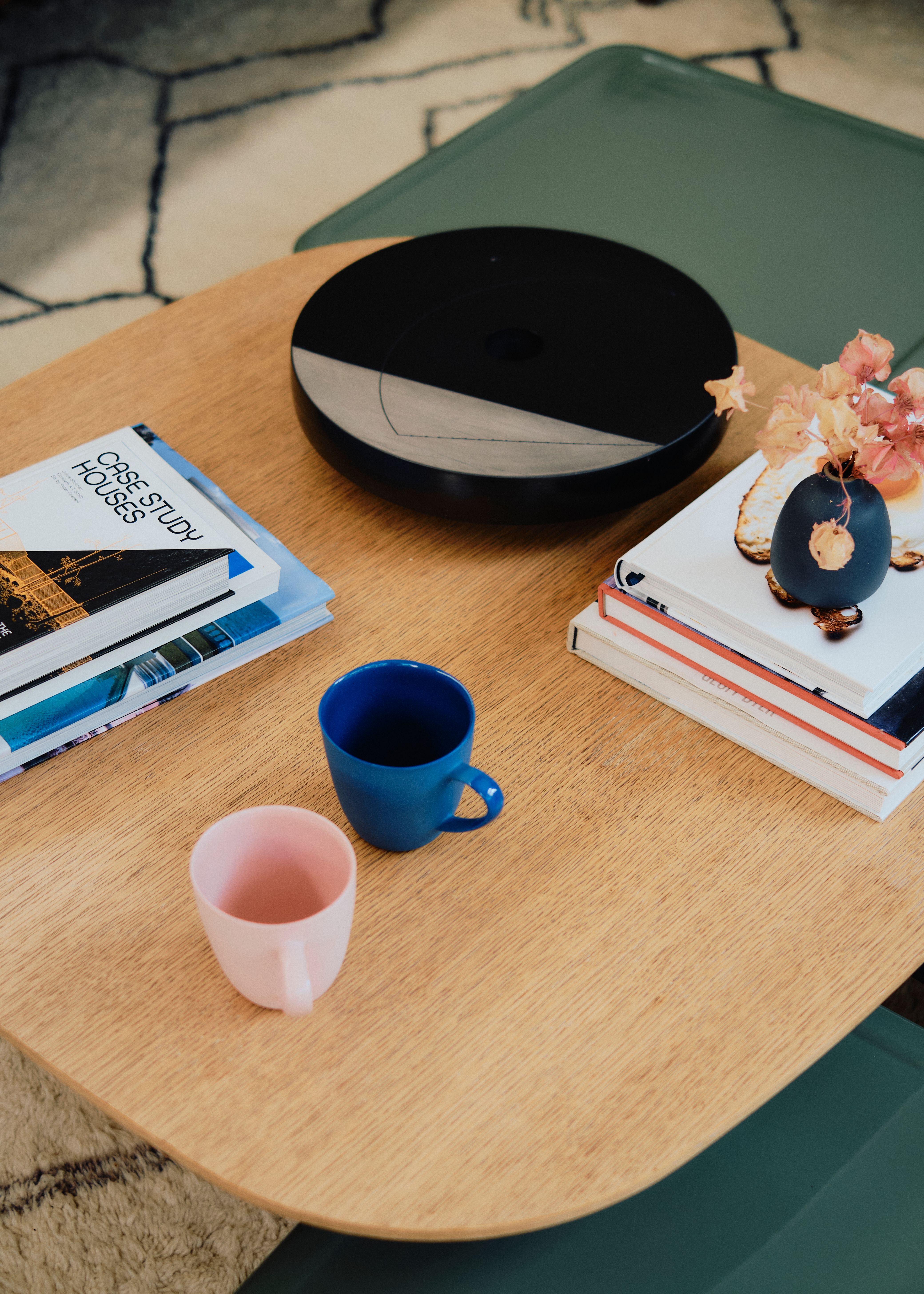At home with Hanna Geller
Hanna Geller, an interior architect turned culinary creator through Building Feasts, invites us into her stylish home in West London.
Hanna Geller, an interior architect turned culinary creator through Building Feasts, invites us into her stylish home in West London.


Traditionally, I make a big buffet lunch on the first day of this two-day holiday. My parents are American and were only here temporarily when I was born. I grew up in a home that was always open to people passing through, and while my extended family was often far away during the holidays, my parents built their own community of friends who felt like family around our table. This is a tradition I continue, always including those who may be far from their own families, as well as my friends who feel like family.
This year, we’re expecting around 40 people spanning three generations. I create a large buffet spread around the table, making it a laid-back, informal gathering. There are some traditional dishes that I know, if changed or omitted, might incite a revolt! It truly is a highlight of my year.
Keep it simple. Don’t make more dishes; make larger quantities of a few. Serve as much as you can in the dishes they were cooked in—this is your chance to showcase the oven-to-table pieces you’ve invested in over the years. Focus on dishes that can be served at room temperature; not everything needs to be hot, especially for a buffet!
Make lists to help you stay organised and keep the spinning plates in your mind at bay. Organise in advance—think about what you’ll be serving in (I even label the dishes so guests can help set up). Choose meals that can be cooked ahead of time and reheated, like lamb or chicken, to minimise panic on the day.
Consider the visuals; keep things colourful—no one wants all brown dishes. Allow people to help; you don’t need to do everything yourself. Buy starters and dips, and encourage guests to bring a cake or a salad if they offer. It makes a big difference and adds to the communal feel. Remember, people are coming to see you—they don’t want you hiding in the kitchen, so prepare dishes that allow you to be present.
There are many traditional foods to enjoy on Rosh Hashanah, primarily sweet and round items, such as apples and honey and round challahs. These foods are meant to signify a sweet year ahead and symbolise the circle of life. You’ll find these themes reflected throughout many dishes.
Discover Hanna's Rosh Hashanah menu



I designed my home with a simple, contemporary open layout, prioritising an inviting and relaxed atmosphere. There are always tucked-away piles of unfinished projects and notepads filled with lists of ideas and things to do, giving you an instant sense of the delightful chaos in this household. It’s filled with an eclectic mix of furniture and items I have collected and accumulated over the years, all of which reflect my style and interests.
I love to learn about a person through the books on their shelves and the knick-knacks on display. They reveal so much about one’s journey, tastes, and history—a beautiful, unspoken window into their world. The moment you walk through my door, it becomes clear that I have a passion for food, architecture, and mid-century design.
Mainly, I love the proximity to Regent's Park, Marylebone, and Soho. You’ll find me most mornings marching around the park before I start my day; it’s how I clear my head. Working from home, I need to leave the house and then return to start work as if I were in an office; otherwise, I find it very difficult to separate home from work. I enjoy jumping on the tube and finding myself in the queue for Koya Bar in less than 25 minutes for a sneaky lunchtime treat.
Maida Vale has many hidden communal gardens, and I love grabbing a coffee on Formosa Street before sitting alongside the canal or strolling through Clifton Nurseries, hoping that one day I might become a keen gardener.
I intentionally designed the house with smaller bedrooms and more generous living spaces, encouraging the teenagers to spend more time outside their rooms. I’ve tried to create communal areas that we can share together, but as long as there are always snacks in the kitchen, I can pretty much guarantee that they will gather around the island. As a mother of boys, I’ve learned to find creative ways to get them to open up, and I’ve found that cookies really help!

It’s remarkably similar: just as you start with the foundations of a plate or a meal, you layer in flavour, colour, and texture. Plates, like rooms, should feel relaxed and inviting, never aiming for perfection. When I designed homes, regardless of their size, it was always important to create spaces where people could gather, preferably around a meal—even if it meant sitting around a coffee table.
My main goals with both spaces and menus are to create simple environments and meals to share with others. This fosters community, solidifies friendships and relationships, and satisfies our innate need to connect. I want to encourage people to feel confident and happy about cooking for others as a means of connection.
I know I should say the kitchen, which is undoubtedly the centre of my home where everything happens, but I actually love spending my evenings with the boys in the “pink room” or den. Whether we’re watching a show, leafing through my latest cookbook, or just drinking tea and discussing our day, it’s a wonderful space. It feels super cosy, especially during the darker winter months, where it creates a cocoon-like atmosphere.
I sometimes wonder if I’m a collector or just a conspicuous accumulator! Funnily enough, I often feel more like a storage facility for when my boys move out, as if I’m babysitting all these family items for them to take into their adult lives—a true reflection of my sentimentality.
I cherish my Wegner rocking chair, a gift I received when I was pregnant with my first child. While it may be a completely useless feeding chair, it’s incredibly comfortable for reading and relaxing, and I sit in it every day. It represents my transition to motherhood and holds a special place in my heart.


